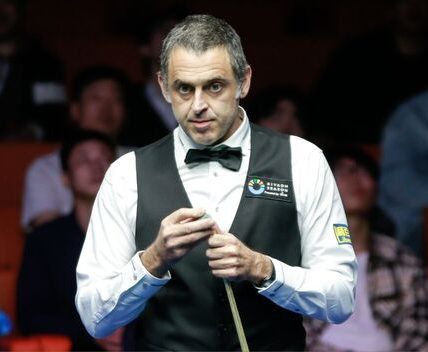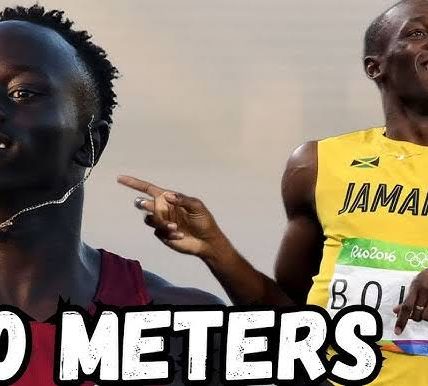Joasia Zakrzewski receives 12‑month ban after using car during ultramarathon
In November 2023, ultra‑distance runner Joasia Zakrzewski was handed a 12‑month ban by UK Athletics following the revelation that she used a car for part of a 50‑mile race — the 2023 GB Ultras Manchester to Liverpool event held on 7 April. (BBC)
This case has stirred debate around fairness, athlete responsibility, and how governing bodies enforce rules in the less‑high‑profile world of ultrarunning.
What happened: the sequence of events
Zakrzewski, a veteran ultrarunner and medical doctor originally from Scotland but residing in Australia, competed in the April race and was initially recorded as finishing third, accepting a trophy and medal. (BBC)
However, after the race, organisers and UK Athletics scrutinised her tracking data and noted a suspicious section: for approximately 2.5 miles, her GPS data showed movement inconsistent with human running. (BBC) One split showed a mile completed in 1 minute, 40 seconds — far exceeding even elite running speeds. (ESPN.com)
When challenged, Zakrzewski admitted that she had accepted a ride in a friend’s car during part of the race, claiming she had become lost and was suffering from leg pain. (CBS News)
She said she informed race marshals that she intended to withdraw, and thereafter decided to continue in a “non-competitive way.” (The Guardian)
Zakrzewski also acknowledged that she had erred in accepting the trophy and medal, adding that she should have returned them immediately — though she did so only later after the matter came to light. (CBS News)
The independent disciplinary panel found several faults with her account.
It noted that she never formally informed officials at the finish line or immediately afterward that she was no longer competing. (BBC)
She also did not return the trophy or medal within a week, nor did she explicitly disclose to the public — including in her social media posts — that she had run the rest of the race in a non‑competitive fashion. (BBC)
The panel judged that these omissions undermined her claims and violated the code of conduct for senior athletes under UKA jurisdiction. (The Guardian)
In all, the panel concluded she had attempted to conceal her breach and thus acted contrary to the integrity expected of senior athletes. (CBS News)
The ban and scope of sanction
As a result, Joasia Zakrzewski is prohibited for 12 months from participating in any event sanctioned by UK Athletics, representing Great Britain, or engaging in roles such as coaching, officiating, or team management under UKA jurisdiction. (CNN)
The ban is effective over the next year and also removes her prior result from that race.
(CBS News) The panel’s reasoning stressed her status as an experienced athlete and former team manager, concluding that those responsibilities made the breach more serious. (CNN) According to the panel:
“The Respondent was an experienced athlete …
As such the Respondent had a responsibility to uphold the rules, and this made it even more serious that she breached them, and did not correct this either when finishing the race or thereafter.” (CNN)
Although Zakrzewski has the right to appeal, the decision stands for now. (CNN)
Reactions, context, and controversies
Athlete’s explanation & remorse
Zakrzewski has expressed regret, calling it a “massive error.” (BBC) She has defended her intentions, insisting that she did not deliberately cheat, and attributing part of the confusion to jet lag (she had traveled from Australia) and physical discomfort during the race. (The Guardian)
She also claimed that once she realized the error, she intended to distance herself from the competitive side, but accepted the trophy in a state of “brain fog.” (BBC)
However, the panel found elements of her defense unconvincing, particularly the delay in returning the trophy and lack of transparent communication. (The Guardian)
Wider reaction & community response
The ultrarunning community has been outspoken.
Some see the punishment as appropriate, others believe the ban is too lenient given the seriousness of the offence. (Reddit)
Many runners argue that crossing the finish line and accepting awards after gaining unfair advantage is a grave breach of sports ethics.
(Reddit) Others point to the fact that ultras often are self-policing races with less oversight than track or road events, making enforcement and retrospective investigations more complex. (Reddit)
Race organisers also defended their decision to review GPS data and maintain transparency; the race director noted that no event personnel were made aware of the car use until external reports came in. (The Guardian)
Some commentators have raised the question of whether past results by Zakrzewski should be scrutinized, though no evidence has yet been produced for other races. (Reddit)
Implications and lessons
This case underlines several lessons for athletes, organisers, and regulators:
-
Integrity and accountability: Elite and veteran athletes are held to high standards. Even if a transgression is partly unintentional or driven by physical distress, failure to own it promptly and transparently exacerbates its seriousness.
-
Technology as evidence: GPS and tracking data are playing an increasingly pivotal role in verifying race legitimacy, especially in ultrarunning, where logistical oversight is often lighter.
-
Responsibility to disclose: Accepting awards or failing to formally inform organisers that you are no longer competing can amplify the breach.
In Zakrzewski’s case, the delay in returning trophies and lack of disclosure weighed heavily on the panel judgment.
-
Governance in lesser‑covered disciplines: Ultramarathons and trail races sometimes lack the rigorous oversight seen in track and road racing.
-
This case may encourage organisers and governing bodies to better define rules, tracking protocols, and post-race audits.
-
Reputation risk: For a prominent ultrarunner, such an infraction damages public trust, raises skepticism about past achievements, and may cast a shadow on future opportunities even after serving a ban.



